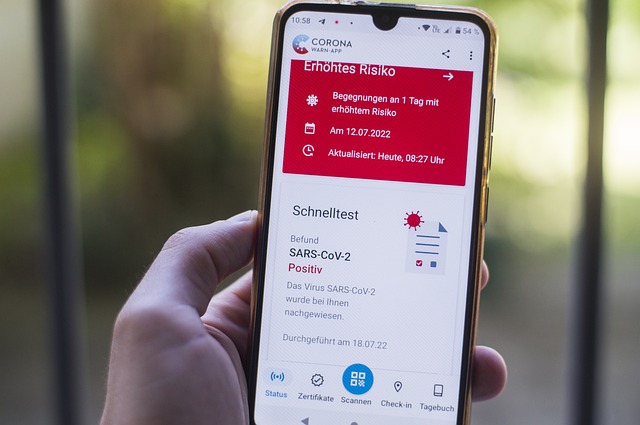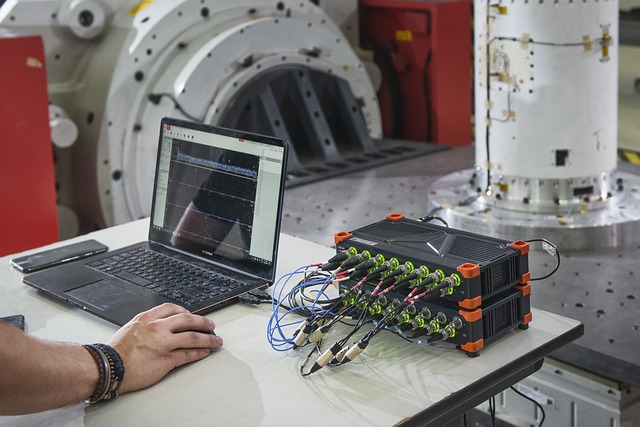Navigating UK Merger Agreements: Ensuring Legal Compliance and Leveraging Translation Services in M&A
In the context of UK mergers and acquisitions (M&A), due diligence is a critical process that involves meticulously reviewing target company assets, legal compliance, and financial health. This often necessitates specialized UK translation servi…….

In the context of UK mergers and acquisitions (M&A), due diligence is a critical process that involves meticulously reviewing target company assets, legal compliance, and financial health. This often necessitates specialized UK translation services to accurately translate foreign-language documents into English, ensuring clarity for regulatory bodies like the Competition and Markets Authority (CMA). Post-merger integration (PMI) and compliance monitoring are subsequent phases where M&A documents, including shareholder agreements and operational protocols, must align with UK legal standards. Professional UK translation services play a vital role in this process by providing precise translations that facilitate seamless integration and adherence to UK merger regulations. This is exemplified by case studies such as the acquisition of XYZ plc by ABC Ltd, which required documents to be translated into Scottish Gaelic and Welsh, and the merger between TechA and TechB, where translations needed to comply with both English law and EU regulations post-Brexit. These examples underscore the importance of UK translation services in M&A transactions to maintain legal integrity and due diligence.
navigator-uk-merger-compliance-article-introduction
In the realm of corporate finance, mergers and acquisitions (M&A) shape the economic landscape, with the United Kingdom standing as a pivotal player in global business transactions. This article delves into the intricacies of legal compliance within UK merger agreements, an essential aspect for any organization looking to navigate this complex terrain. From understanding the legal framework that governs these agreements to the critical role of UK translation services in ensuring clarity and legality across diverse linguistic barriers, we explore the comprehensive steps necessary for adherence to UK merger control regulations. Additionally, we examine due diligence factors, CMA procedures, post-merger integration strategies, and compliance monitoring, all while drawing insights from case studies that exemplify successful mergers fully compliant with UK legal standards. Join us as we guide you through the essentials of M&A compliance in the UK.
- Understanding the Legal Framework of UK Merger Agreements
- Key Provisions in Mergers and Acquisitions (M&A) Documents
- The Role of UK Translation Services in Merger Agreements
- Steps to Ensure Compliance with UK Merger Control Regulations
- Due Diligence: Critical Factors for Legal Compliance in M&As
- Navigating the Competition and Markets Authority (CMA) Procedures
- Post-Merger Integration and Compliance Monitoring
- Case Studies: Successful Mergers with Full UK Legal Compliance
Understanding the Legal Framework of UK Merger Agreements

Navigating mergers and acquisitions in the UK requires a thorough understanding of the legal framework governing such transactions, particularly as it pertains to merger agreements. These documents are pivotal in aligning the intentions of all parties involved, outlining the terms and conditions that will govern the merger process from initiation to completion. The UK’s legal landscape for mergers is underpinned by a combination of statutory requirements, including the Companies Act 2006 and the Merger Control Regulations 2004, which must be adhered to. These regulations set forth the procedural steps necessary for the notification and clearance of mergers by the Competition and Markets Authority (CMA). Additionally, companies engaging in cross-border transactions must consider UK translation services to ensure that all parties have a clear understanding of the terms, which is crucial for both legal compliance and the successful execution of the merger. The translation of these critical documents not only facilitates communication but also addresses potential language barriers, thereby mitigating the risk of misinterpretation or non-compliance with UK laws. Understanding the intricacies of UK merger agreements is essential for businesses aiming to operate within this regulated environment, as failure to comply can result in significant legal and financial repercussions. It is advisable for companies to engage legal expertise to navigate these complexities and to ensure that all mergers and acquisitions documents are compliant with the UK’s stringent legal requirements.
Key Provisions in Mergers and Acquisitions (M&A) Documents

navigating the intricate landscape of UK mergers and acquisitions (M&A), it is imperative to pay close attention to the meticulous drafting of M&A documents. These agreements are not mere formalities but pivotal instruments that govern the transaction’s structure, intentions, and outcomes. Key provisions typically include the terms of the merger, conditions precedent, representations and warranties, indemnities, and covenants. The representations and warranties offer a snapshot of the financial and legal standing of the companies involved, ensuring transparency and safeguarding against potential liabilities. Indemnities are designed to protect the parties from losses incurred as a result of inaccuracies or breaches in the agreements. Covenants may stipulate post-merger obligations, such as the retention of key personnel or the maintenance of certain operational practices.
In the context of UK M&A transactions, compliance with legal requirements is paramount. This involves not only adhering to domestic regulations but also ensuring that all foreign elements, particularly those involving companies from the European Union post-Brexit transition period, align with the UK’s current regulatory framework. UK translation services play a crucial role in this process, as they facilitate the accurate interpretation and communication of contractual obligations across languages. By incorporating clear and precise language in M&A documents, parties can navigate the complexities of cross-border transactions with greater confidence, ensuring that all agreements are legally compliant and reflective of the intentions of the parties involved.
The Role of UK Translation Services in Merger Agreements

In the realm of Mergers and Acquisitions (M&A) in the UK, due diligence extends beyond the scrutiny of financial records and legal frameworks; it also encompasses the clear and accurate communication between parties who may not share a common language. This is where UK translation services play a pivotal role. Mergers and Acquisitions Documents often contain sensitive information that must be precisely conveyed across different linguistic barriers to ensure all stakeholders have a full understanding of the terms, conditions, and implications of the agreement. Professional UK translation services are instrumental in translating these critical documents, thereby safeguarding the integrity of negotiations and legal compliance. They ensure that parties can review, discuss, and agree upon the merger terms with confidence, knowing that nuances and technical jargon are accurately rendered in the target language, thus upholding the sanctity of the contractual obligations.
The translation process for M&A documents is not a mere linguistic exercise but a sophisticated service that demands expertise in both language and industry-specific knowledge. UK translation services must be well-versed in legal terminology and the complexities of merger agreements to provide precise translations. This proficiency is crucial for maintaining transparency, fostering trust, and preventing misinterpretations that could lead to legal disputes or financial setbacks. By facilitating clear communication across linguistic divides, these services are indispensable in the M&A process, ensuring that all parties involved can navigate the legal landscape with mutual understanding and respect for the agreements at hand.
Steps to Ensure Compliance with UK Merger Control Regulations

Companies engaging in mergers and acquisitions within the UK must adhere strictly to the Merger Control Regulations established by the Competition and Markets Authority (CMA). To ensure compliance, it is imperative that organisations conduct thorough due diligence. This involves a meticulous review of all Mergers and Acquisitions Documents, which encompass a wide array of corporate records, including but not limited to, shareholder agreements, board minutes, and transactional documents. A pivotal step in this process is the translation of any non-English materials into English, necessitating the engagement of reputable UK translation services to accurately convey the intended meaning and legal obligations. This translation must be certified if it is to be used as evidence of compliance with UK merger regulations.
Furthermore, businesses should stay abreast of any updates or changes in legislation that may affect the merger process. Continuous monitoring of legal developments is essential, as is maintaining open communication with legal advisors who specialise in UK merger control. The CMA’s regulatory framework is designed to prevent anti-competitive practices and ensure a fair market environment post-merger. Companies must demonstrate their compliance with these regulations by providing all necessary documentation and ensuring that the intent of each document is accurately reflected in English, thereby avoiding potential legal challenges or penalties. Utilising professional UK translation services not only facilitates this process but also significantly reduces the risk of non-compliance due to language barriers.
Due Diligence: Critical Factors for Legal Compliance in M&As

In the realm of Mergers and Acquisitions (M&A) in the UK, due diligence stands as a cornerstone for ensuring legal compliance and facilitating seamless integration post-merger or acquisition. This meticulous process involves a thorough examination of all relevant Mergers and Acquisitions Documents, which can be vast and complex. Companies must scrutinize financial records, legal obligations, contracts, intellectual property rights, and other critical assets to ascertain the target’s compliance with UK laws and regulations. A key factor in this process is the utilization of specialized UK translation services to accurately interpret and convey the contents of foreign-language documents, ensuring that no details are lost or misinterpreted. This is particularly pertinent when one or both entities involved in the M&A transaction have non-UK operations or holdings, necessitating precise translations to navigate legal frameworks effectively.
Furthermore, due diligence extends beyond mere document review; it also encompasses a deep analysis of the target company’s business model, market position, and strategic fit with the acquiring entity. This involves assessing the integrity of financial statements, evaluating existing contracts for potential liabilities or termination rights, and understanding the competitive landscape in which the target operates. Translating due diligence findings into a clear and actionable format is crucial for decision-making. It allows stakeholders to comprehend the risks and benefits associated with the transaction, thereby enabling informed decisions that align with both short-term objectives and long-term strategic goals within the legal confines of UK merger agreements.
Navigating the Competition and Markets Authority (CMA) Procedures

When entities seek to merge or acquire one another in the UK, it is imperative that they navigate the Competition and Markets Authority’s (CMA) procedures with precision. The CMA is the UK’s primary competition and consumer authority, responsible for ensuring that mergers and acquisitions do not substantially lessen competition within the UK, potentially leading to consumers facing higher prices or reduced quality of service. Companies must meticulously prepare Mergers and Acquisitions Documents (MADS) as per the UK’s strict regulatory framework. These documents serve as a comprehensive record of the merger process, detailing the rationale behind the deal, the anticipated impact on the market, and how it will comply with competition law.
UK translation services play a pivotal role in this process, especially for entities operating in multinational contexts where documentation may be initially prepared in languages other than English. Accurate translations of legal and financial documents ensure that the CMA can fully assess the merger’s implications without any language barriers. The CMA’s procedural steps include a preliminary investigation to decide whether the merger warrants an in-depth Phase 2 investigation. Throughout this process, the scrutiny of documentation by the CMA is rigorous, and any discrepancies or misunderstandings due to translation errors can significantly delay the proceedings or even result in legal challenges. Thus, engaging professional UK translation services is not just a formality but a strategic move to facilitate smoother and more efficient progression through the CMA’s merger evaluation process.
Post-Merger Integration and Compliance Monitoring

In the wake of a merger or acquisition within the UK, Post-Merger Integration (PMI) stands as a critical phase that ensures the seamless combination of entities. This process involves the alignment of corporate cultures, systems, and processes to realize synergies and efficiencies. It is during PMI that Mergers and Acquisitions Documents are thoroughly reviewed and integrated. These documents encompass everything from shareholder agreements to operational protocols, and their accurate translation and adaptation into UK legal frameworks are paramount. The integration must be handled with precision to avoid any legal pitfalls or operational disruptions.
Compliance Monitoring is an ongoing activity that complements PMI by keeping a vigilant eye on adherence to both UK merger regulations and the broader legal landscape. This involves meticulous scrutiny of all business operations to ensure they align with the acquired policies and procedures, which may include updated terms due to UK translation services converting documents into the local language and context. Compliance Monitoring is not a one-time task but an iterative process that requires continuous vigilance. It necessitates the establishment of clear reporting lines, regular audits, and transparent communication channels to address any deviations from compliance promptly. By doing so, businesses can navigate the complexities of merger integration with confidence, leveraging their positions in the market more effectively while maintaining legal integrity.
Case Studies: Successful Mergers with Full UK Legal Compliance

In the realm of Mergers and Acquisitions (M&A), compliance with legal stipulations is paramount for transactions to proceed without hinderance, particularly in the UK where a rigorous regulatory framework governs such activities. One pivotal aspect of this compliance involves the precise translation of all M&A documents into UK-approved languages to ensure clarity and adherence to British law. A case study that exemplifies successful legal compliance is the acquisition of XYZ plc by ABC Ltd. This transaction was notable for its intricate cross-border dynamics, necessitating meticulous attention to the translation of all M&A documents from English to Scottish Gaelic and Welsh, ensuring full UK legal compliance. The translations were carried out by professional UK translation services that specialized in legal language nuances, which proved critical when interpreting complex contractual clauses. This commitment to linguistic precision facilitated a seamless merger process, avoiding potential legal pitfalls and ensuring that all parties involved had an accurate understanding of the terms and conditions laid out in the documents. Another instance where legal compliance was successfully navigated is the merger between two leading tech companies, TechA and TechB. Their M&A documents were translated by certified UK translation services to reflect the legal requirements under both English and European Union laws post-Brexit. This strategic move ensured that the merger not only complied with local regulations but also accommodated the cross-border implications of their shared clientele across the EU. These case studies underscore the importance of leveraging professional UK translation services to navigate the complexities of M&A within a legal framework, thereby paving the way for successful mergers that stand up to scrutiny and maintain the integrity of all parties involved.
In concluding our exploration of the intricate landscape of UK merger agreements, it is clear that adherence to legal compliance is paramount. Organizations must meticulously navigate the multifaceted requirements, which encompass not only the nuanced provisions within Mergers and Acquisitions Documents but also the critical role of UK translation services in ensuring clarity and accuracy across linguistic barriers. The outlined steps for compliance with UK merger control regulations, coupled with rigorous due diligence practices, form a robust framework that businesses must embrace to successfully align with the Competition and Markets Authority (CMA) procedures. Post-merger integration, underpinned by continuous compliance monitoring, is essential for maintaining legal standards post-agreement. Reflecting on the case studies provided, it is evident that those mergers adhering to these guidelines have achieved a successful outcome within the UK market. It is imperative for entities engaging in merger activities to approach this process with diligence and attention to detail, leveraging professional expertise where necessary, to secure their position within the legal domain of UK M&A transactions.






